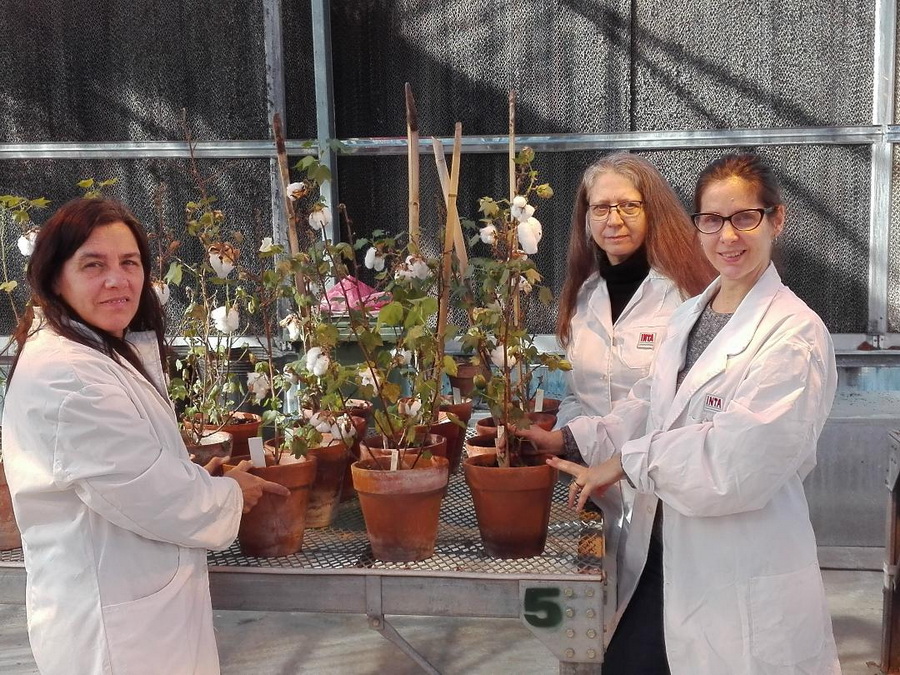
Argentina Successfully Develops Boll Weevil-Resistant Cotton
July 24, 2019| |
Scientists from Argentina have developed a transgenic cotton resistant to the cotton boll weevil through gene silencing, minimizing the damage caused by the pest and allowing cotton plants to thrive.
Cotton boll weevil (Anthonomus grandis) has plagued Argentina's cotton industry for years, causing significant losses during cotton production. This challenge drove the researchers from the National Institute of Agricultural Technology (INTA), to develop transgenic cotton resistant to the pest. The scientists aim to decrease the damage caused by the weevil to the cotton plant to help Argentina's cotton industry.
After nine years of research, INTA finally developed varieties resistant to the cotton boll weevil through the RNA interference strategy, wherein a small sequence of the RNA in the cotton plant was taken to block the function of a specific gene in the boll weevil to decrease its ability to cause damage. The researchers then developed an adjusted transformation system using the gene of interest to make the trait more stable. Their next step is to produce more lines of the transgenic cotton and evaluate its performance under greenhouse, in vitro, and field settings.
As explained by one of the developers, their objective is to successfully develop a transgenic cotton that expresses a sequence that generates the RNAi. When the cotton weevil eats the floral buds of the transgenic plant, the buds will hopefully interfere with the pest's cellular metabolism. If the pest does not die from eating the buds, it will at least decrease its reproductive capacity and control the population of the pest. Both outcomes will still be beneficial to Argentina's cotton industry.
Read the preliminary results of this on-going research in INTA.
| |
You might also like:
- Argentina Approves Fifth GM Cotton Trait
- New Biotech Cotton Event Approved in Argentina
- GM Approval Database - Approved Insect-Resistant Cotton Events
Biotech Updates is a weekly newsletter of ISAAA, a not-for-profit organization. It is distributed for free to over 22,000 subscribers worldwide to inform them about the key developments in biosciences, especially in biotechnology. Your support will help us in our mission to feed the world with knowledge. You can help by donating as little as $10.
-
See more articles:
-
News from Around the World
- New Software Allows Plant Breeders to Select Best Traits
- Research Presents 5-Course 'Menu of Solutions' to Feed the World's 10 Billion by 2050
- Farmers in Uganda Eager for the Commercialization of Ag-biotech Products
- Kenyan Clergy Supports Bt Cotton Cultivation
- Improved Cacao Reference Genome Secures the Future of Chocolate
- Agricultural Progress Anchored on the Newly-signed Executive Order
- SABC Seeks Tax Exemption on Essential Farm Inputs to Fight Fall Armyworm
-
Research Highlights
- Two-year Field Trial Shows Cry1Ie Maize Has No Effect on Soil Animals
- Argentina Successfully Develops Boll Weevil-Resistant Cotton
- Fundamental Discovery Key to Creating Better Crops
-
Plant
- New Regulatory Mechanism of Self-Incompatibility in Rapeseed Reported
- How about CRISPR-edited Crops in Organic Agriculture?
-
Read the latest: - Biotech Updates (January 21, 2026)
- Gene Editing Supplement (December 17, 2025)
- Gene Drive Supplement (February 22, 2023)
-
Subscribe to BU: - Share
- Tweet

